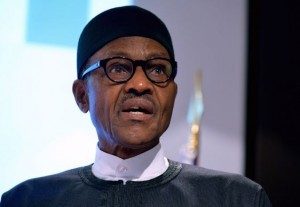 Nigeria will need to combine monetary policies with fiscal and structural policies in order to overcome its worst economic crisis in decades and return to growth, President Muhammadu Buhari said on Thursday.
Nigeria will need to combine monetary policies with fiscal and structural policies in order to overcome its worst economic crisis in decades and return to growth, President Muhammadu Buhari said on Thursday.
Nigeria is in the middle of its worst crisis in decades as a slump in oil revenues hammers public finances and the naira. Gross domestic product shrank in the first quarter and the central bank governor has said a recession is likely.
“We fully understand that monetary policy alone is not sufficient to bring about desired economic growth,” Buhari told a meeting of African central bank governors in Abuja.
“For us in Nigeria, while we recognise the challenges we are confronting … we are determined to diversify the economy away from the excessive reliance on oil and other primary products.”
Economists have criticised Buhari and the government for not doing enough to address the crisis.
Nigeria’s central bank raised interest rates last month, and has been soaking up liquidity in order to support the naira, which has lost around 40 percent of its value since it was floated in June.
Buhari said the continent was confronted with slowing growth, weakening demand, rising inflation, restrictions to capital flows, rising debt levels, increases in exchange rate volatility and a depletion of foreign reserves.
The central bank governors were meeting to discuss ways to safeguard their economies from the expected unwinding of loose monetary policies in the leading developed economies.
Support InfoStride News' Credible Journalism: Only credible journalism can guarantee a fair, accountable and transparent society, including democracy and government. It involves a lot of efforts and money. We need your support. Click here to Donate
